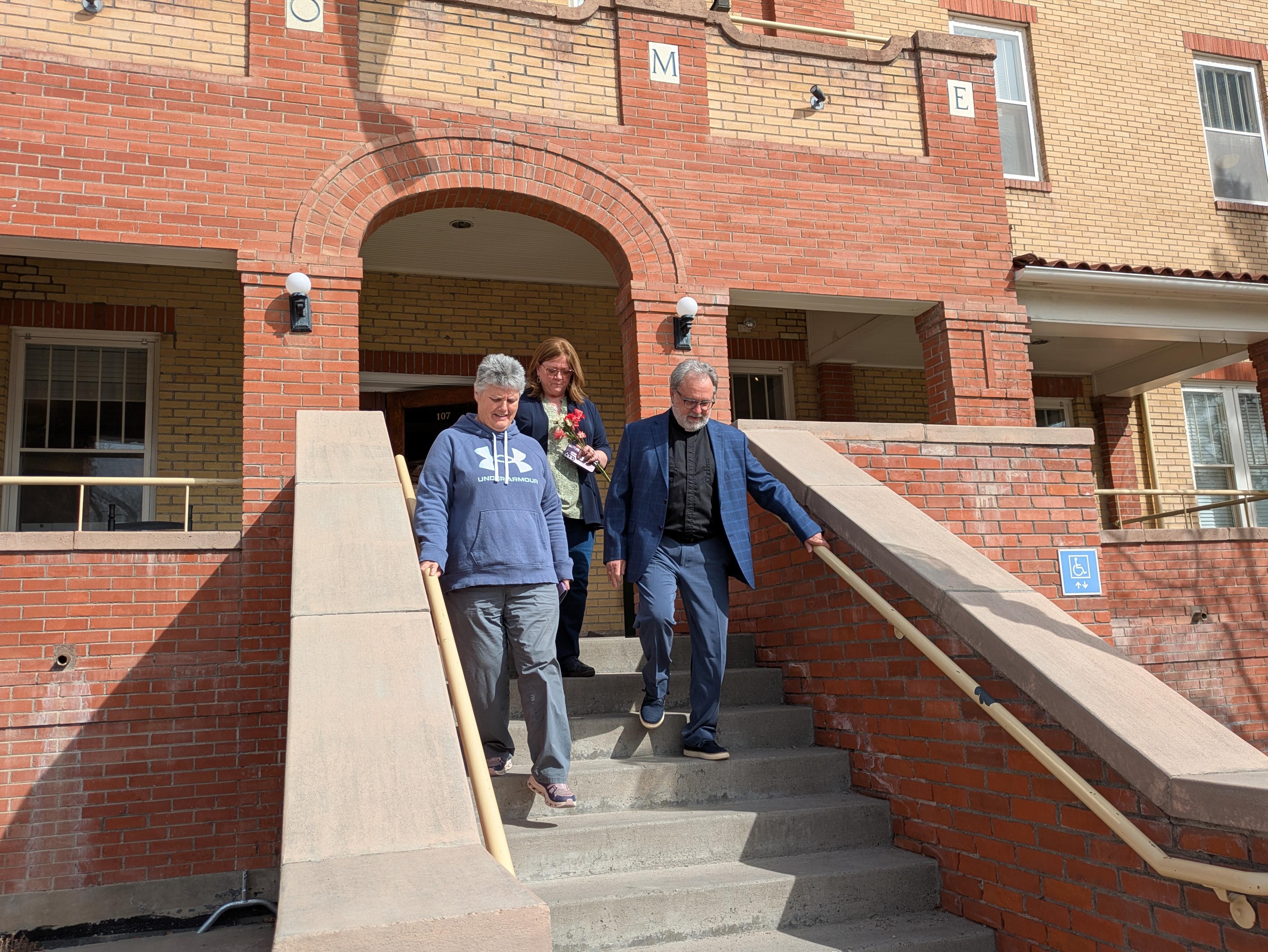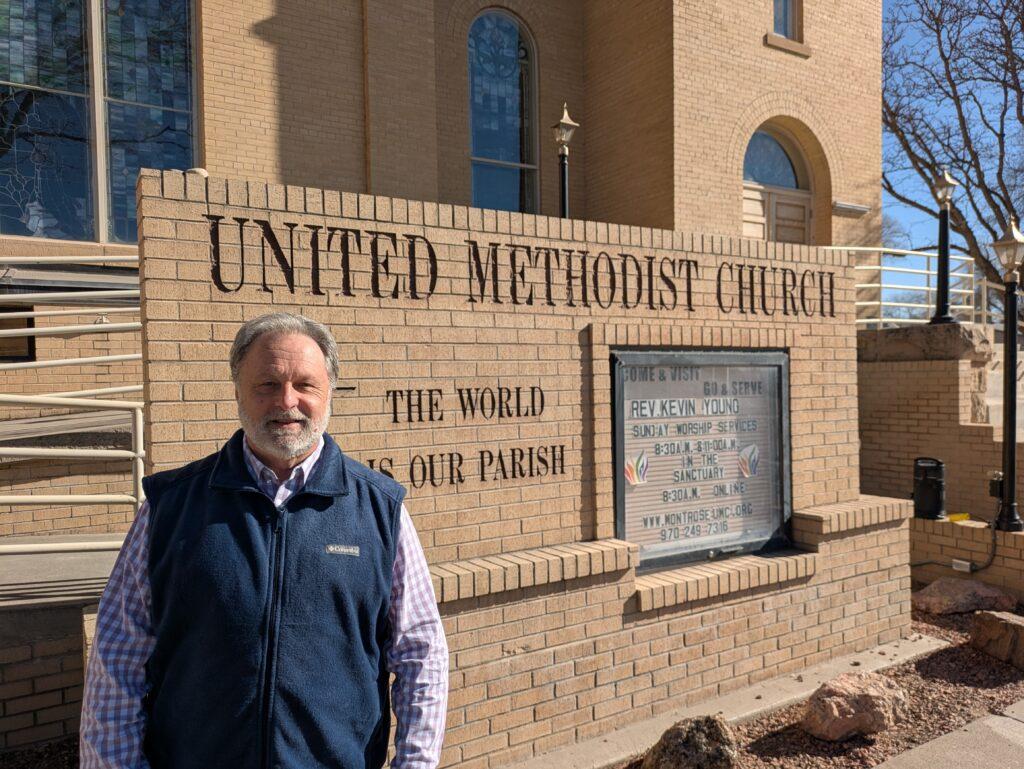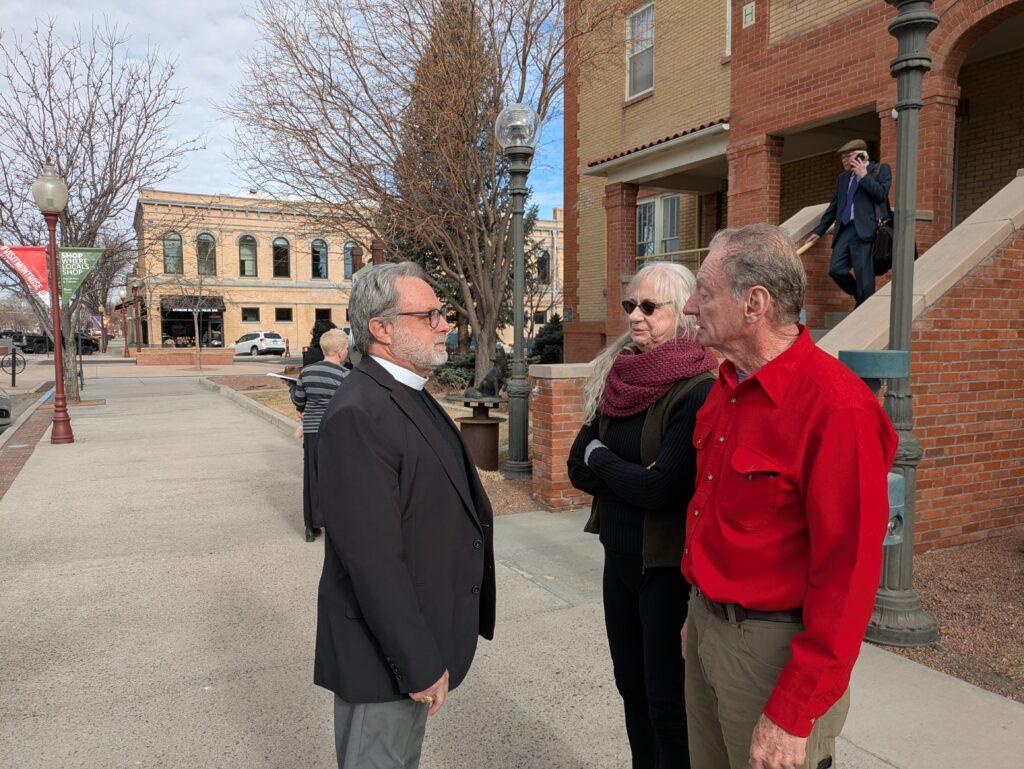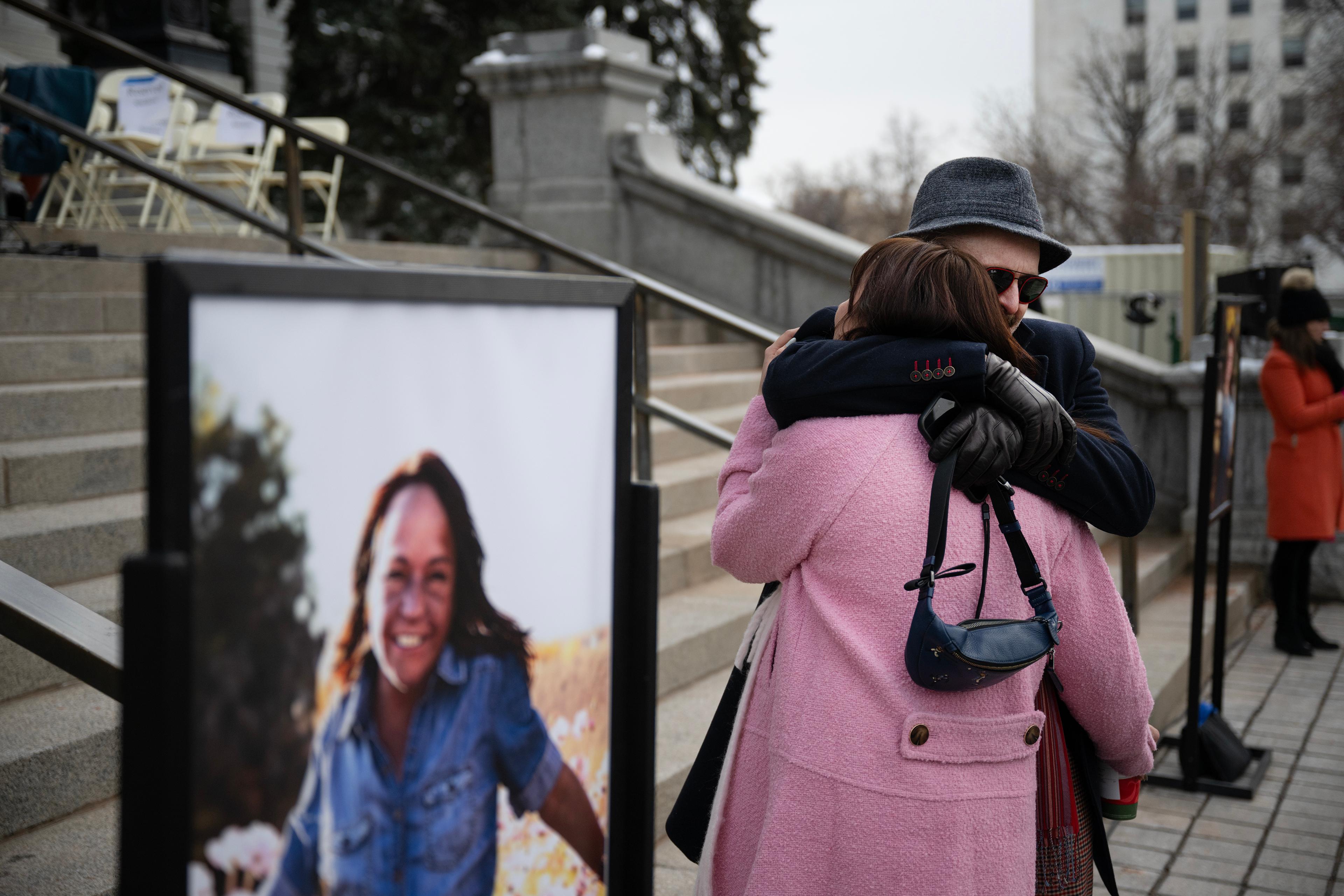
At a hearing in Montrose, on Wednesday, Municipal Court Judge Erin Maxwell rejected a city request for an emergency abatement on a camp of unhoused residents sitting on Montrose United Methodist Church grounds. The abatement would have permitted city authorities to go onto private property to potentially clear the camp, which has drawn controversy in recent weeks.
“If the fire department — the experts in this case — are willing to give the church time in this matter, so will the court,” Maxwell said, scheduling a review of the situation in two weeks.
At issue for the abatement hearing was a claim by the city that public health, safety and fire code issues had grown to a point that the city needed emergency authority to intervene. Maxwell heard testimony from fire and health officials and said, while testimony demonstrated there were problems, current concerns did not constitute an emergency.
“It is clear that the church is making progress,” Maxwell said, noting that United Methodist was found in violation of six fire codes on first inspection and only three on a follow-up.
The city’s abatement request is just one step in a lengthy dispute over the camp, which grew significantly beginning in December and now houses around 20 people, all of whom are required to sign a behavior agreement with the church before camping there.
“I’m so happy that they’re not going to come and move everybody out of there today,” Reverend Kevin Young said.

Wednesday's hearing exceeded four hours, including more than 10 witnesses and dueling testimony over photographs of the camp. The city suggested the camp had grown in size, grown more disorderly and grown more dangerous. Meanwhile, the defense argued the camp was becoming more organized and that the church was working with the city fire marshal to alleviate any concerns.
John Fleming, the defense attorney for Young and the church, said the city’s actions amounted to using ordinances “rather than attacking the church itself.”
“Clearly, it’s the city’s belief that it’s more important to make things look nice than it is to help those who need help,” he said.

Montrose City Attorney Chris Dowsey said code violations alone do not prompt emergency abatement requests and that the city’s concerns were warranted.
“In totality, this is not just a minor zoning infraction, it has come to an emergency,” Dowsey said.
During the city’s presentation, Dowsey called on multiple law enforcement officers and neighboring businesses to argue the camp was making the area unsafe.
Testimony included descriptions of overflowing trash cans, a man who had intimidated nearby employees — including with sexually suggestive statements — as well as a nonfatal drug overdose.
Fleming argued the church had remedied the trash issue by obtaining a second dumpster, that the man accused of intimidating the employees was not a resident of the camp — and in fact, had been removed by police from church property — and that the person who overdosed was given Narcan and may not have received help had he been alone.
“If you allow the abatement to clear the camp, it would unreasonably interfere with the use of that private property for 20 people,” Fleming said, comparing it to the two business owners who spoke.
First things first
While the court was only considering if the issue required emergency action, discussion of the church’s defense for the citation violations did arise several times. Fleming argued the city’s code enforcement cannot interfere with the church’s First Amendment rights — including their exercise of religion which involves helping the unhoused.
“We would feel unbelievable conflict inside ourselves because, in our own minds, we are following the most fundamental teachings of Jesus,” Pastor Young told the court.
The First Amendment conversation drew some objections from the city since they were not the focus of the hearing.
City citations related to the unhoused camp have not yet been ruled on by the court. However, during a discussion about the relevancy of First Amendment questions, Maxwell did remark that Fleming’s argument could have merit in future hearings.
“I think you’re making what will be a very good argument,” Maxwell said.









